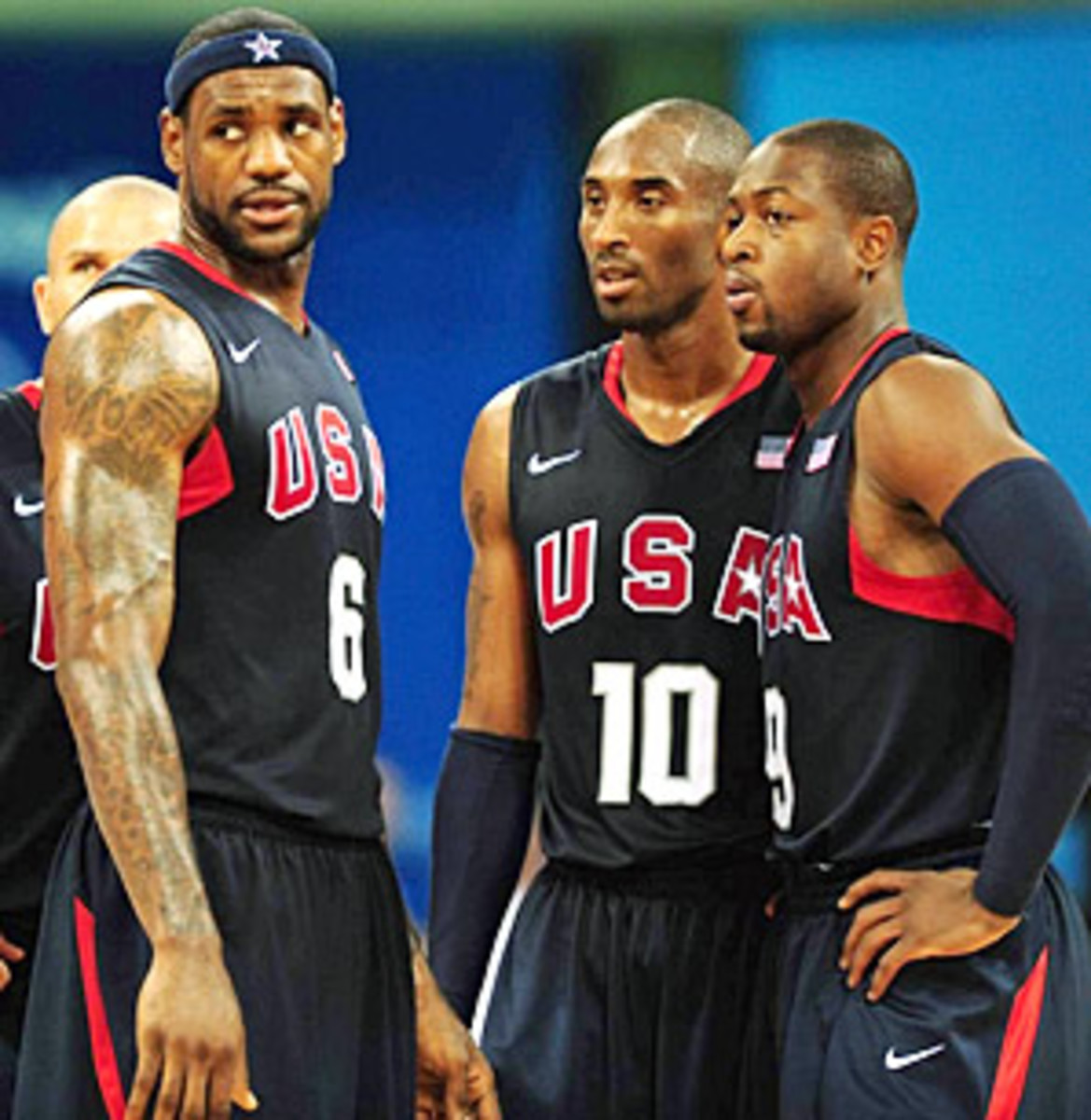The Redeem Team quieted critics -- and it would beat the Dream Team
I was wrong.
There, I said it. I didn't believe USA Basketball had any shot at winning the gold medal at the Beijing Olympics.
I didn't think the Americans would have enough shooters, even with the addition of Milwaukee Bucks gunner Michael Redd. I didn't think they had brought enough big men. With officiating in international competition questionable at best (who can forget a frustrated Tim Duncan's "FIBA sucks" line from 2004), I believed the trio of Dwight Howard, Chris Bosh and Carlos Boozer would need more assistance inside.
But more than anything, I thought the world was simply too good in this environment. Can anyone say the U.S. fielded an inferior team at the '04 Olympics (where it lost three times and finished third)? What about the '06 world championships (where it was upset by Greece in the semifinals and settled for the bronze medal again)? Were there any teams in those competitions that could come close to matching the individual talent that the U.S. possessed? Of course not. But countries operating with pinpoint precision and a growing talent pool had mastered the intricacies of international play, from zone defenses to moving screens. And that advantage, in several instances, had proved to be decisive against the Americans.
This time around, it wasn't. It's a credit to USA hoops boss Jerry Colangelo and coach Mike Krzyzewski for fielding and developing an athletic, ball-hawking team that, up until the gold-medal game against Spain, was a defensive nightmare, along with being tremendously effective scoring in transition.
Were there a few moments for pause for the U.S.? Sure. Especially in the final against an inspired Spanish team that trailed by only two points in the fourth quarter. But by and large, Team USA exceeded every expectation in Beijing. The Americans won eight games by an average of 27.9 points. They earned the gold by beating Australia (which gave them their best game in the exhibition schedule), Argentina (the defending Olympic champions) and Spain (the reigning world champions) in succession during the medal round.
So with members of the '08 team now sporting shiny gold medals around their necks, their perfect run in Beijing begs the question: Could this group beat the first Olympic squad made up of NBA players?
The answer: Absolutely.
In order to buy into that line of thinking, the first thing you have to do is throw everyone's résumés in the garbage. The 1992 Dream Team had 10 players on the NBA's 50 Greatest Players list. It had Magic Johnson. It had Larry Bird. And to top it all off, it had Michael Jordan.
The young '08 team doesn't have a fraction of that cachet. The Redeem Team eventually might rival the Dream Team in terms of surefire Hall of Famers, but most of the players on the court during Sunday's 118-107 victory against Spain still have a lot of work to do to earn their place in Springfield. Six Redeem Teamers are 24 or younger, and only Jason Kidd and Kobe Bryant are at least 30 (the latter celebrated his 30th birthday Saturday).
However, that relative youth is one of the biggest reasons why the '08 team is superior. The '92 team was old. Bird was 35 and on the verge of retirement from the NBA. Magic was almost 33 and hadn't played in more than a year. Only the little-used Christian Laettner was under 25.
The Dream Team certainly had weapons. At 29, Jordan was in his prime, and Karl Malone, Charles Barkley, David Robinson and Patrick Ewing would have been a lot for the Redeem Teamers to handle inside.
But I think they would have found a way. LeBron James would have been extremely difficult for any Dream Team player to defend, even Jordan or Scottie Pippen. The Redeem Team's swarming pressure defense would have wreaked havoc on John Stockton and the other Dream Team guards. And this U.S. team is better at playing by the international rules.
Think about it: The '92 team was assembled quickly and had little experience in Olympic competition. Yes, the games were blowouts (the closest outcome was a 32-point win against Croatia in the gold-medal game), but they were supposed to be. When opposing players are signaling to friends to snap pictures while they are guarding you, losing doesn't seem likely. The minutiae, the subtle differences between the NBA and international play, were not an issue 16 years ago.
But against the current U.S. team, they would be. Because of high-profile failures leading into the Beijing Games, USA Basketball has learned its international lessons the hard way. The Americans were befuddled by Greece's moving screens in '06 and stymied by well-played zone defenses in '04. But they have learned to use the rules to their advantage. Watch Howard poke a ball off the cylinder or Bryant spend longer than three seconds away from his man and you will understand: This U.S. team gets it.
Without question, it would be a competitive game. The Redeem Team would try to run while the Dreamers would do their best to use their size and strength in the half court. But the experience of the '08 team would win out.






